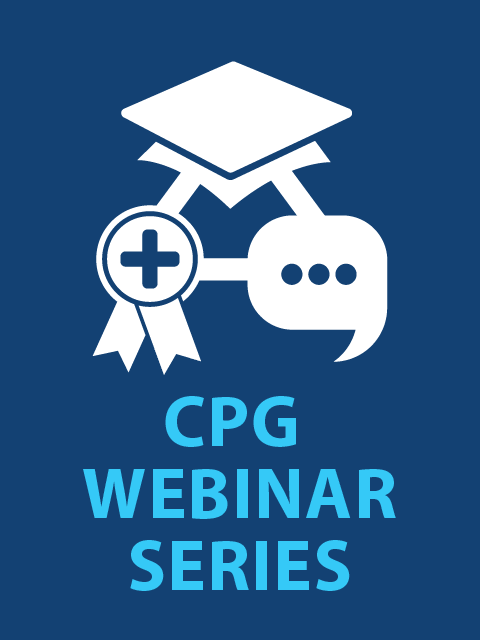MIRECC / CoE
5: Cognitive Behavioral Therapy for Suicide Prevention (CBT-SP)
Risk Management and Treatment » Non-pharmacologic Interventions
5: Cognitive Behavioral Therapy for Suicide Prevention (CBT-SP)
We suggest cognitive behavioral therapy-based psychotherapy focused on suicide prevention to reduce the risk of suicide attempts in patients with a history of suicidal behavior within the past six months.
Strength:
Weak for
Category:
ReviewedNew-replaced
Grades and Definitions
- Strong for
- or "We recommend offering this option …"
- Weak for
- or "We suggest offering this option …"
- No recommendation
- or "There is insufficient evidence …"
- Weak against
- or "We suggest not offering this option …"
- Strong against
- or "We recommend against offering this option …"
Categories and Definitions |
||
|---|---|---|
| Evidence Reviewed* | Recommendation Category* | Definition* |
| Reviewed | New-added | New recommendation following review of the evidence |
| New-replaced | Recommendation from previous CPG that has been carried over to the updated CPG that has been changed following review of the evidence | |
| Not changed | Recommendation from previous CPG that has been carried forward to the updated CPG where the evidence has been reviewed but the recommendation is not changed | |
| Amended | Recommendation from the previous CPG that has been carried forward to the updated CPG where the evidence has been reviewed and a minor amendment has been made | |
| Deleted | Recommendation from the previous CPG that has been removed based on review of the evidence | |
| Not reviewed | Not changed | Recommendation from previous CPG that has been carried forward to the updated CPG, but for which the evidence has not been reviewed |
| Amended | Recommendation from the previous CPG that has been carried forward to the updated CPG where the evidence has not been reviewed and a minor amendment has been made | |
| Deleted | Recommendation from the previous CPG that has been removed because it was deemed out of scope for the updated CPG | |
| *Adapted from the NICE guideline manual (2012): The guidelines manual. London: National Institute for Health and Care Excellence;2012. and Martinez Garcia L, McFarlane E, Barnes S, Sanabria AJ, Alonso-Coello P, Alderson P. Updated recommendations: An assessment of NICE clinical guidelines. Implement Sci. 2014;9:72. | ||
Recommendation Resources
Cognitive behavioral therapy for suicide prevention (CBT-SP) refers to a group of therapies using a cognitive behavior therapy (CBT) approach to reduce risk of future suicidal behaviors. The majority of studies reviewed for this recommendation used a psychotherapy intervention grounded in CBT to explicitly address suicide risk. Key components of this approach include teaching patients to identify and modify problematic thinking and behavioral patterns that precede suicidal behaviors and the use of both cognitive and behavioral strategies to help patients learn adaptive ways of coping with suicide-related stressors. Although there may be some variation with respect to CBT's alignment with patient values and preferences, most patients typically report high satisfaction with CBT focused on suicide prevention.
Videos
This section includes recommended videos about CBT-SP.
- CBT for SP — an informational video created in partnership with MIRECC and EDC/Brad Karlin:
Books
The section includes recommended books about CBT-SP.
Return to Resource OptionsWebinars
This section includes recommended webinars about CBT-SP.
-
 Cognitive Behavioral Therapy for Suicide Prevention Presented by Dr. Gregory K. Brown
Cognitive Behavioral Therapy for Suicide Prevention Presented by Dr. Gregory K. Brown -
 Suicide Prevention 2.0 Clinical Telehealth Program Presented by Dr. Jessica A Walker
Suicide Prevention 2.0 Clinical Telehealth Program Presented by Dr. Jessica A Walker -
 Suicide Prevention 2.0 Clinical Telehealth: Implementation of an evidence-based psychotherapy program to reduce suicide behavior in U.S. Veterans Presented by Dr. Jessica A Walker
Suicide Prevention 2.0 Clinical Telehealth: Implementation of an evidence-based psychotherapy program to reduce suicide behavior in U.S. Veterans Presented by Dr. Jessica A Walker
Articles
This section includes recommended articles about CBT-SP.
- (2005). Cognitive therapy for the prevention of suicide attempts: a randomized controlled trial. JAMA, 294(5). 563-570. https://doi.org/10.1001/jama.294.5.563
- (2019). Brief cognitive behavioral therapy reduces suicidal ideation in veterans with chronic illnesses. General hospital psychiatry, 58. 27–32. https://doi.org/10.1016/j.genhosppsych.2019.02.002
- (2016). Psychosocial interventions for self-harm in adults. The Cochrane database of systematic reviews, (5). CD012189. https://doi.org/10.1002/14651858.CD012189
- (2017). Is cognitive behavioural therapy effective in reducing suicidal ideation and behaviour when delivered face-to-face or via e-health? A systematic review and meta-analysis. Cognitive behaviour therapy, 46(5). 353-374. https://doi.org/10.1080/16506073.2017.1332095
- (2017). Strategies to prevent death by suicide: meta-analysis of randomised controlled trials. The British journal of psychiatry : the journal of mental science, 210(6). 396-402. https://doi.org/10.1192/bjp.bp.116.187799
- (2015). Brief cognitive-behavioral therapy effects on post-treatment suicide attempts in a military sample: results of a randomized clinical trial with 2-year follow-up. The American journal of psychiatry, 172(5). 441–449. https://doi.org/10.1176/appi.ajp.2014.14070843
- (2021). Psychotherapeutic interventions for the prevention of suicide re-attempts: a systematic review. Psychological medicine, 51(15). 2525–2540. https://doi.org/10.1017/S0033291721003081
- (2021). Psychosocial interventions for self-harm in adults. The Cochrane database of systematic reviews, 4(4). CD013668. https://doi.org/10.1002/14651858.CD013668.pub2














 Cognitive Therapy for Suicidal Patients; Scientific and Clinical Applications by Wenzel, Brown & Beck
Cognitive Therapy for Suicidal Patients; Scientific and Clinical Applications by Wenzel, Brown & Beck 





